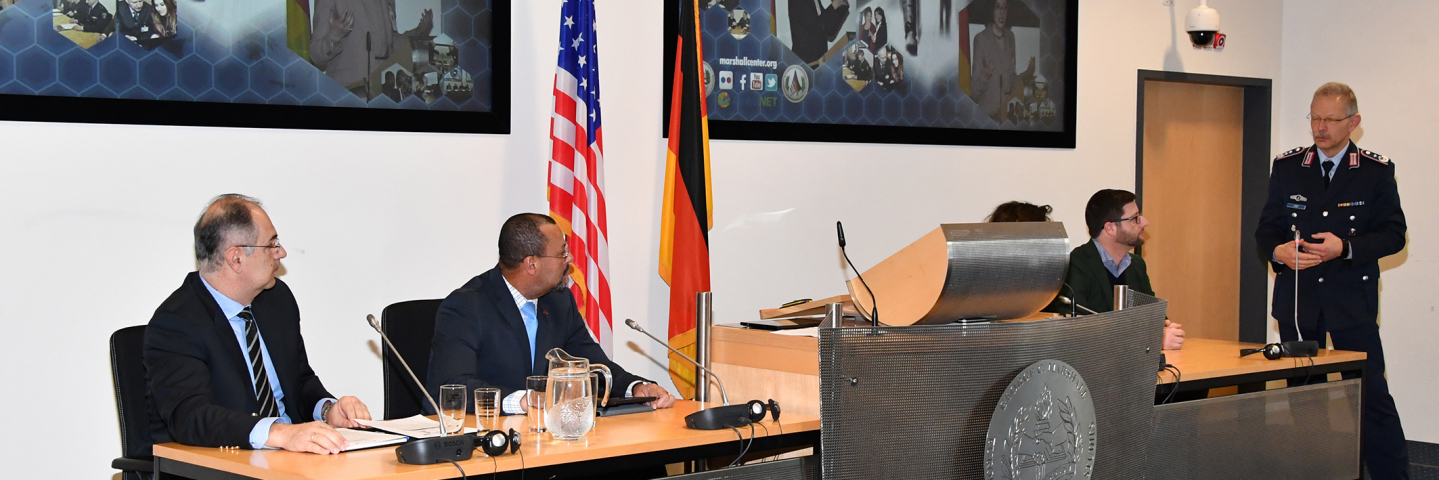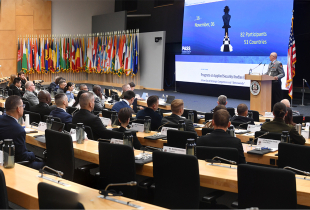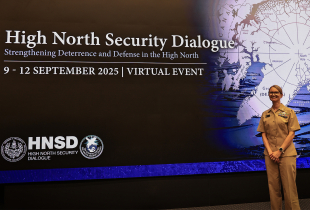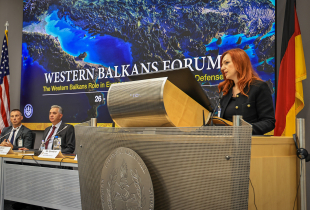
Participants from 25 Countries Complete the Seminar on Regional Security
By Christine June
Public Affairs Office
George C. Marshall European Center for Security Studies
GARMISCH-PARTENKIRCHEN, Germany (Feb. 8, 2018) – Sixty government and military professionals from 25 countries completed the Seminar on Regional Security at the George C. Marshall European Center for Security Studies Feb. 8.
Held once a year, SRS focuses on European regional security challenges that are driving political agendas and public discussion. This is the sixth iteration of this resident program at the Marshall Center. The seminar began in 2013. Watch the promo video here.
Ambassador Mary Beth Leonard, U.S. ambassador for the U.S. Missions to the African Union and the U.S. permanent representative to the United Nations Economic Commission for Africa, addressed the participants before they left today to head back home.
She took the time to talk about the importance of diplomacy, and her impressions of the Marshall Center and its mission. Watch the interview here.
For the second year, SRS participants tackled the conflict between the Republic of Moldova and “Transnistria,” an unrecognized state along its eastern border with Ukraine.
“We decided to look into this conflict that has nearly been forgotten,” said German Luftwaffe (Air Force) Col. Jörg Kunze, course director of the Seminar on Regional Security. “Maybe, we can help our participants take home some creative ideas on how to tackle this conflict and conflicts in their neighborhoods in the future.”
To hear Kunze talk about SRS, visit the Marshall Center’s YouTube Channel.
Transnistria broke away from the former Moldavian Soviet Socialist Republic of the Soviet Union in 1990. Fighting broke out between the two sides in the spring of 1992 with the breakup of the Soviet Union. In July 1992, the Transnistrian authorities and the central government in the Republic of Moldova agreed on a ceasefire.
Although there has been economic cooperation and free movement between the two, the conflict remains to this day and is a major obstacle for the Republic of Moldova’s membership into the European Union.
Central to this course is the examination of multiple regional conflicts along European borders, past and ongoing, which will allow participants to enhance their ability to analyze and propose resolution.
For this course, participants analyzed four major crises: Cyprus; Libya; Bosnia and Herzegovina; and, Syria.
To practice what they learned from these case studies, participants delved into the complex nature of negotiations during the “Normalization of Relations between Moldova and Transnistria” capstone exercise in their final week of the three-week long SRS, which began Jan. 18.
An overall agreement was reached by the negotiation teams during the capstone exercise.
The intent of SRS is to provide participants with the knowledge and tools needed to address current and evolving international and regional security challenges, said Kunze.
“We hope the participants leave with those capabilities and are able to effectively manage conflicts in their countries and neighborhoods,” Kunze said, “but we also want them to build and strengthen personal networks within the realm of international crisis management and maintain those networks after they return home.”


